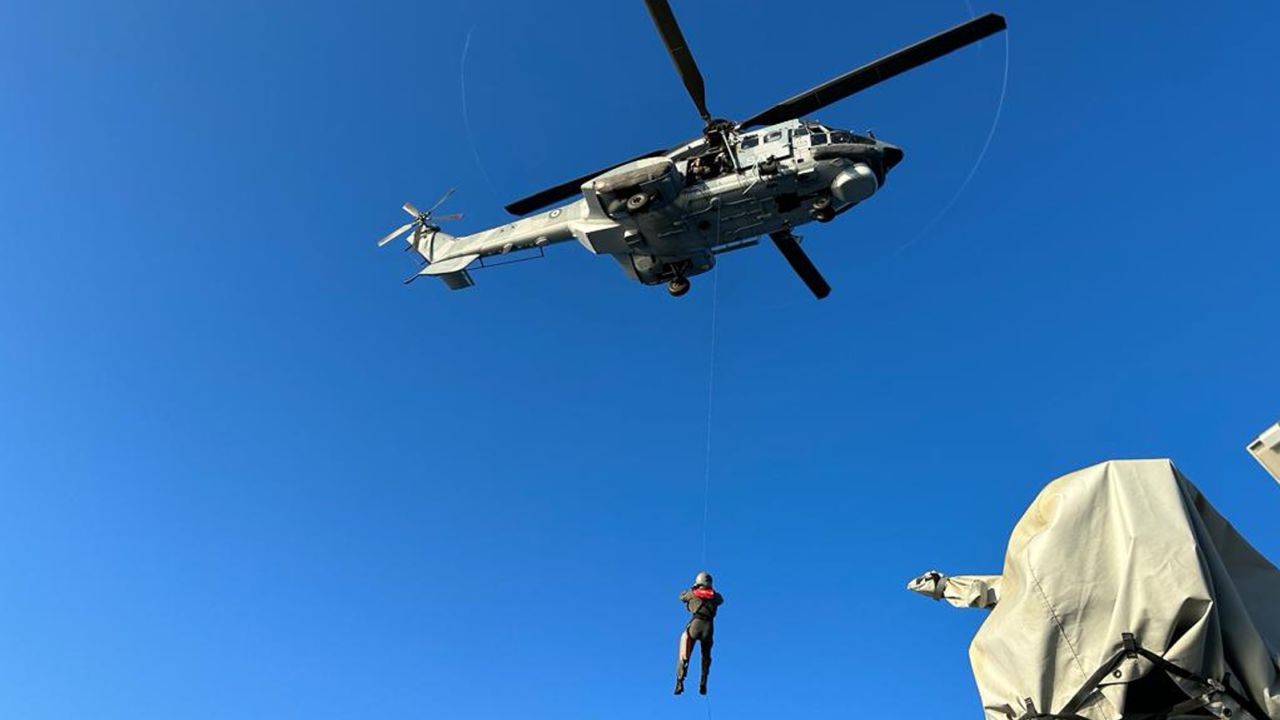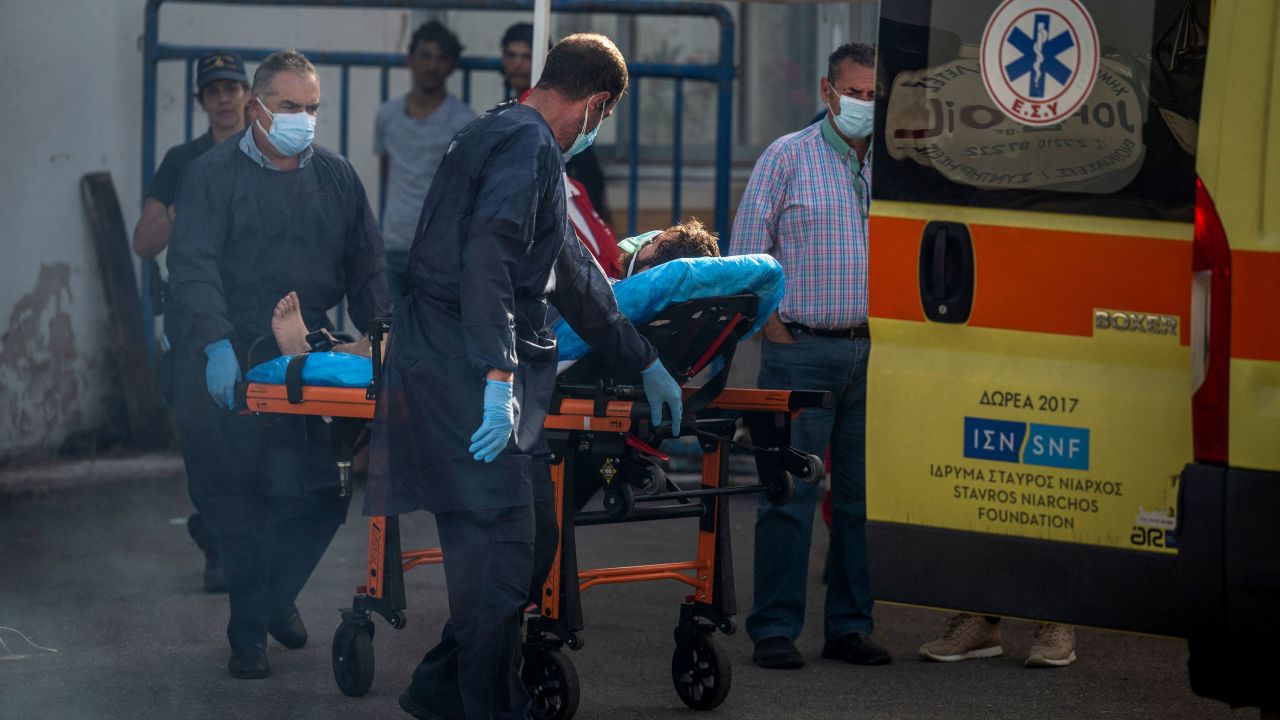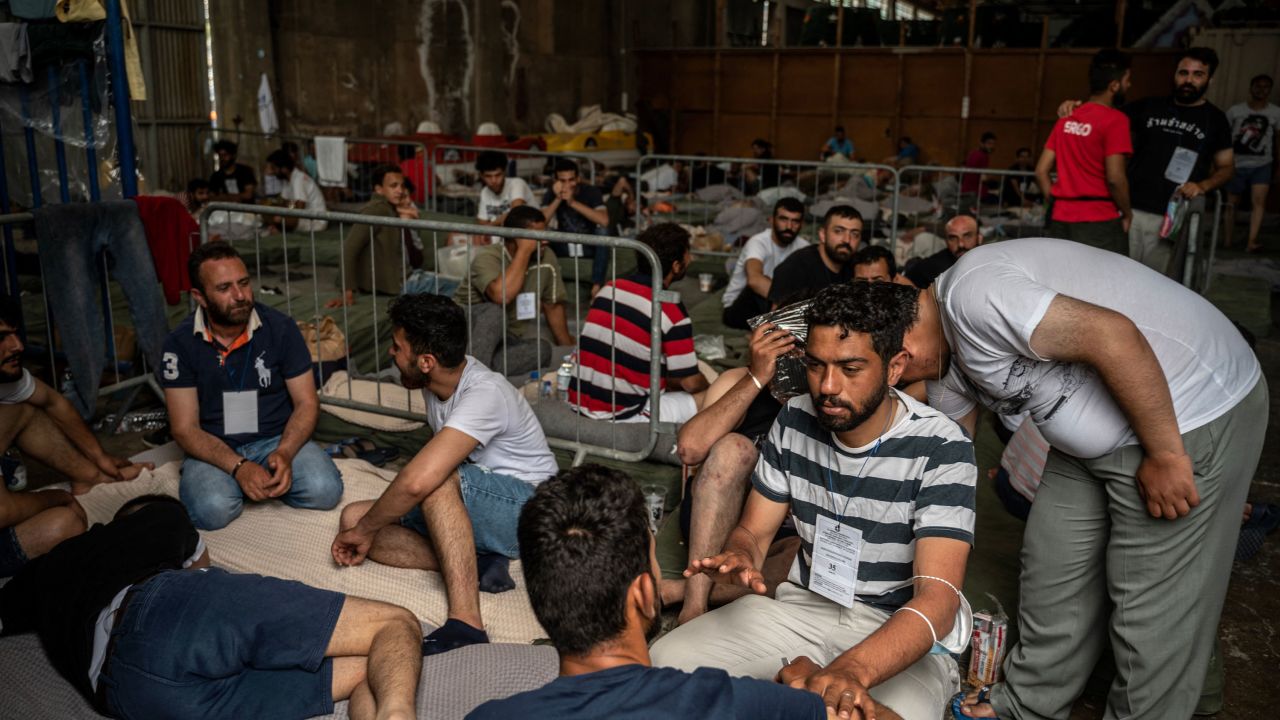Gujrat, Pakistan
CNN
—
Pervez Akhtar fights through tears as he recalls the final words of his 14-year-old son.
“It will all be OK,” Muhammad Abuzar told him. “I’ll educate my brothers, I’ll make your house. You won’t go hungry. Just pray for me.”
Akhtar now sits in his dilapidated, one-room home in a village in Pakistan’s eastern district of Gujrat, looking through photos of Abuzar. His gaunt face unable to hide the anguish and despair.
Abuzar was aboard a fishing trawler that capsized in the Mediterranean last month, sinking with it hundreds of people searching for a better life.
The boat was carrying up to 750 Pakistani, Syrian, Egyptian and Palestinian refugees and migrants. Only 104 people have been rescued.
Abuzar’s body has not been recovered.
His father, a school bus driver who earns less than $90 a month and had to sell his home to pay his son’s smugglers, now has three children to feed in a nation grappling with soaring inflation and a crippling economic crisis.
Akhtar can only afford to give his children a loaf of dry bread to eat. He is struggling to pay his $18 electricity bill. And he doesn’t have the money to care for his youngest son – a disabled boy confined to his bed, requiring round-the-clock care.
But he would be willing to endure even more poverty and hardship if it could bring his boy back.
“Take our money, take our house. Show us a miracle,” Akhtar said. “We will be enslaved for the rest of our lives if we are reunited with our son. If anyone brings him back… we be enslaved to them.”
Abuzar was a bright boy, the top of his 9th grade class and eager to learn, his father said. Like other boys the world over, Abuzar enjoyed making TikTok videos and posted dozens of clips of himself lip synching to music, taking selfies with his siblings, and posing with cattle and motorbikes in his village.
Despite his youth – his boyish features made him look even younger than his 14 years – he took the weight of his family’s suffering upon his shoulders.
He felt the hunger in his household, and saw his parents and younger siblings going without at the end of the month when the money ran out.
“He said we’ll die of hunger here anyway, it’s better to leave and he’ll be able to help,” Akhtar said. “He said he’ll be able to pay for a decent education for his brothers, get medical treatment for his youngest brother, maybe add a room to the house.”
Many older boys from surrounding villages had successfully made the dangerous journey to Europe through human smuggling operations and were sending remittances back home, his father said.
Abuzar had pleaded to go.
The choice for Abuzar, like millions of others like him, was to watch his family starve at home or risk death attempting to reach Europe where there was a promise of work.
His uncle had decided to try and make it to Europe and Abuzar saw his chance.
So, the family were put in touch with a people-smuggling agent in the nearest town, a jeweler who assured them it was worth the risk and cost of 2.6 million rupees ($9,300) to send Abuzar to Italy.
“We told him we can’t afford it. (The agent) said if you have a house just sell it, in a year you’ll have 10 houses that’s how much they will earn. So we were then convinced by him and so were our kids,” Akhtar said.
At the beginning of May, Akhtar said his son, his uncle and a small group of teenage boys set off from the village.
Human smugglers organized for the group to fly from Karachi to Dubai, and then on to Egypt and Libya.
From Tripoli airport they drove to the Libyan port city of Tobruk and waited for the next month in a camp filled with others hoping to cross to Europe.
The perilous route, take by millions of others before them, brings the constant risk of detention, abuse and kidnap for ransom or trafficking – before migrants even set foot on a boat attempting to cross the Mediterranean.
And the journey itself is perilous. At least 289 children are estimated to have died or disappeared this year attempting to cross the central Mediterranean Sea migration route from North Africa to Europe, UNICEF said in a statement on Friday.
According to UNICEF, this equates to nearly 11 children dying or disappearing every week.
The day before the group set sail for Italy – their intended final destination – Abuzar sent a video to his disabled brother hoping to make him laugh, poking out his tongue and waving at the camera.
“He would call us every single day as soon as he woke up and say ‘salam papa’ to me,” Akhtar said.
The last call Abuzar made was the evening of June 8. “He was really happy to speak to his mother and his little brother,” Akhtar said, adding that Abuzar knew the boat journey would be risky and asked his family to pray for him.
The next morning, Akhtar received two messages, saying, “Papa they are filling us in a container and taking us,” and that he was on the boat.

On June 9, Abuzar boarded the fishing vessel, reportedly known as the Adriana, which had a capacity of 100. Instead, 750 people were crammed onboard, of whom almost half were from Pakistan, according to the Pakistani Interior Ministry.
“After that there was no contact,” Akhthar said.
More than 600 people drowned on June 14 in what would become one of the deadliest migrant boat tragedies. Among the survivors were just 12 Pakistanis, but Abuzar was not one of them.
Pakistan’s Interior Minister Rana Sanaullah told parliament last month that 350 Pakistan nationals died in the tragedy, and that 193 DNA samples have been recovered.
Greek authorities have faced criticism for how the disaster was handled, and uncomfortable questions have been raised about European countries’ attitudes toward migrants. Greek officials denied claims that the boat had capsized after the coast guard attempted to tow it to shore.
“For us, life and hell is the same,” Akhtar said. “We crave the sound of his voice.”
Stricken with grief, he warned others against sending family on similar journeys.
“If anyone asks me I will tell them, letting them die hungry is better than this,” he said. “Don’t part with these pieces of your heart.”
Testimonies of those who were onboard paint a picture of chaos and desperation when the boat went down.
Multiple survivors and their relatives previously told CNN that conditions on the overcrowded migrant boat deteriorated fast in the more than five days after it set off from Libya for Italy. They ran out of water and resorted to drinking from storage bottles that people had urinated in, according to their accounts.
Fights broke out over food and water, passengers were fainting and even dying, survivors said.
Survivors CNN spoke to in Greece also said the boat was crammed with people spread over three decks. The worst was the lowest deck, where it was nearly impossible for travelers to move, they said.

Speaking to CNN in Pakistan, Mohammad Tahir said his brother Mubasher Sahzad, 29, was also on the boat. They knew nothing of the conditions on board, only that Mubasher would be on a “big ship,” he said.
“The agent had assured us before taking the payment that they had a cargo ship which brings cargo and they will make them wear uniforms in a legal manner. Whoever their ship workers are who unload and load the ship, that’s how they will find him. That’s how they had fully assured us,” Tahir said.
They were told by the agent to expect a call in five to six days. It never came.
The smugglers “show golden dreams over here, about what it will be like out of country, how much money they’ll earn,” Tahir said. “We are shattered and broken inside, he was our brother and all we can hope is that what happened to us, doesn’t happen to anyone else.”
Every year, tens of thousands of people fleeing war, persecution, climate change and poverty risk treacherous routes to Europe.
The Mediterranean, particularly around Greece’s many southern islands, is a key route for migrants and refugees attempting to flee political strife, persecution and poverty in the Middle East, Asia and Africa.
Pakistan, a nation of about 220 million, is in the throes of its worst economic crisis in decades. Work is scarce; inflation is soaring; and essentials including food and fuel are increasingly costly.
The number of Pakistanis traversing dangerous routes to Europe in search of a better future has increased since last year, according to the Mixed Migration Center. And Italy is a major destination for Pakistanis fleeing violence, insecurity, poverty and conflict in their home country.
According to the Mixed Migration Centre, last year Pakistanis weren’t even among the top 10 nationalities arriving in Europe. This year, however, they are ranked number five, with economic migration fueling the surge.
“The common narrative is that smugglers lure people into this dangerous journey. But in fact the people that influence the decision of migrating are mostly family. So migration is a family investment,” said Roberto Forin, deputy director at the Mixed Migration Centre.
For desperately poor families, having a son or relative in Europe could make the difference to their survival.

“It’s easy to judge refugees and migrants and their family as reckless,” Forin said. But “migration is sometimes a strategy for a family to cope with a very difficult situation back home.”
With few legal avenues to live and work in other countries, many asylum seekers and migrants feel they have no choice but to risk dangerous irregular journeys.
Mia Sato, chief of mission for the International Organization on Migration (IOM) Pakistan, said migrants are often deceived by promises of making lots of money abroad.
“We have to do more to communicate with more accurate information and it has to be a migrant centered approach. We have to be in their shoes, so that we can really communicate the messages for their migration decision,” Sato said.
Information campaigns to raise awareness for vulnerable peoples about the risks associated with irregular migration is just one way to help tackle the issue, she said.
Because the nature of smuggling involves transnational criminal smuggling networks, that means “our response, our actions also have to be transnational, more coordinated, and a comprehensive response to these types of criminal activities,” Sato said.
Authorities in Pakistan say they are cracking down on human trafficking networks in the country, arresting more than 20 “human smugglers” and “traffickers.”
On Thursday, Pakistan’s Federal Investigation Agency said it arrested four “human traffickers” involved in the Greek boat tragedy, including from Gujrat.
Special teams have also been formed in the capital Islamabad, as well as the cities of Lahore, Gujrat, Gujranwala and Rawalpindi, to arrest other suspects, it said.
In Europe, Forin said, current policy discussions on migration in the European Union typically center on “breaking the business model of smugglers as if we are dealing with organized crime.”
“Whereas in our view, we are dealing with a demand for irregular journey that is mostly led by the lack of legal pathways. We are hearing about further increasing border protection, increasing detention at the border. This will actually feed more demand for smuggling,” he said.
Despite the tragedy and the devastation for the families, many more are still waiting to board boats across the Mediterranean.
Qayyum Bibi’s 20-year-old son was supposed to be on the capsized vessel but smugglers took him off the ship because of overcrowding.
He’s now waiting for the next boat that will take him to Europe and the hope of a better future, she said from Bandali in Pakistan-administered Kashmir.
“I asked him to come home but he won’t. He wants to go to Europe, like other boys from our village,” she said.
“I pray that he makes it.”